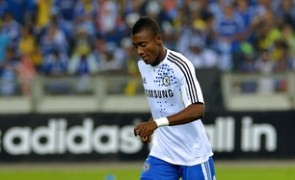Sports News
Sports news brings home the excitement and thrill of live sporting action. In common journalistic practice, sports news is sometimes perceived as a pseudo-serious form of news casting as it does without political, social or economic issues of the world. Nevertheless, the growing importance of sports since the 1960s has led to the formation of dedicated sports departments in almost all the top news agencies in the world, engaging reporters to dig out locker room sports news stories and present them for investigative, entertainment or factual purposes.
The huge influx of money into international sporting events such as the Olympics or FIFA World Cup is one of the main reasons sports news is no longer considered to be a neglected field of reporting. The long history of journalism has witnessed some of the most prolific writers earning name and fame by churning out engaging sports news copies reflecting the ups and downs in the world of sports and sportspersons. British sports news writer Neville Cardus was well known for his gifted critique of cricket that rendered a romantic charm to the gentleman’s game. In later years, John Arlott became famous worldwide for his radio commentary on BBC.
Following World War II, sports news started receiving its due importance in the UK press. Several national dailies decided to have separate sports news sections whereas some Sunday tabloids appointed scribes dedicated to the previous day’s football matches. Before the advent of modern electronic media, many news agencies used to publish on Saturdays special results editions of the entire week’s action. The practice of current/former players writing sports news articles in guest columns came to existence following the 1924 Paris Olympics, when British athlete Harold Abrahams was hired by The Sunday Times to pen sports news copies.
Despite the accolades sports news copies receive in professional circuits, there had been instances when sports news reporters are condescended upon by players and clubs. Recently, Man U boss Sir Alex Ferguson and Tottenham Hotspur manager Harry Redknapp on separate occasions refused to talk with newsmen from BBC. In the US though, media seems to enjoy a good rapport with sports teams and individual players.
Objectivity and unwavering loyalty to facts are not enough to deliver an engaging sports news copy. Sports journalism should also involve analysis of events and predicting future trends with a certain degree of accuracy. For a sports news scribe with sound analytical and intuitive skills, it becomes doubly easier to cover important tournaments that sometimes see topsy-turvy turns in fortune.




